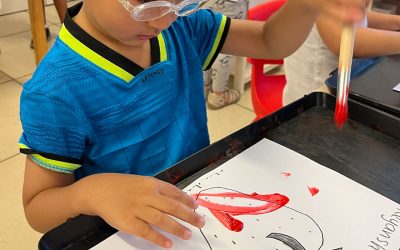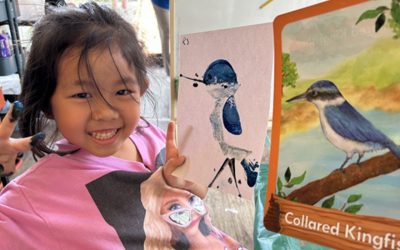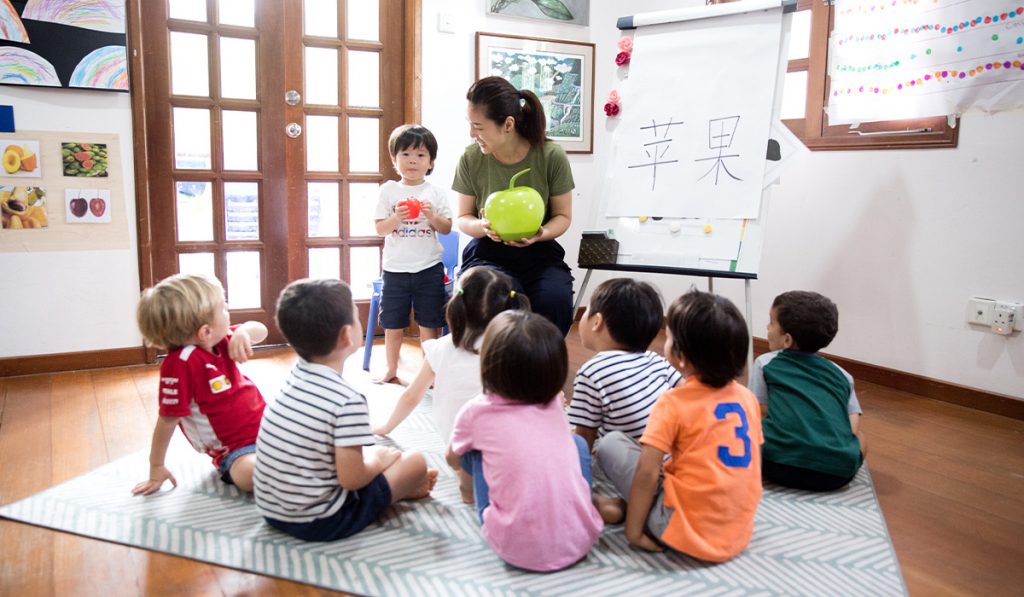
Wishing to prepare your children to thrive in the future? Equip them with the ability to converse and communicate in other languages. In today’s globalised world, it is more important than ever for our children to be multilingual.
Since Mandarin Chinese is the most spoken language in the world, it is a particularly valuable language for kindergarten-aged kids in Singapore to learn.
At Heartfield Kindergarten, children are immersed in Mandarin from a young age, giving them a strong foundation and love for the language. We blend immersive learning with games and songs. Interaction with native Mandarin-speaking teachers enriches this experience.
We emphasise that Mandarin is a language and not a subject. So, instead of traditional drilling, we create opportunities for our children to speak, listen to, write, and read Mandarin in real-life settings. By doing so, we bring meaning, interest and engagement to the language.
In this article, you will learn all about the importance and benefits of learning Chinese from an early age. We will also highlight how Heartfield makes learning Chinese fun, as well as tips on what parents can do to aid this linguistic journey at home.
The Importance of Learning Mandarin
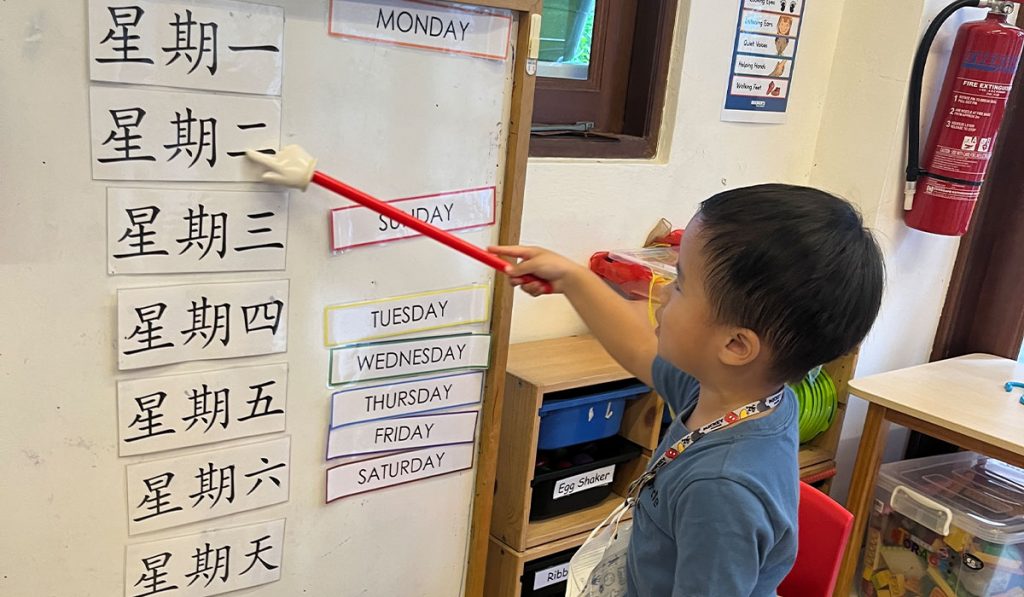
Mandarin is the most spoken language in the world, with over 1.1 billion native speakers. It is also the official language of China and Taiwan. Here in Singapore, it is one of the four official languages of Singapore, along with English, Malay and Tamil, and is widely used in government, business, and everyday life.
There are many reasons why children in Singapore should learn Mandarin. Here are just some of the reasons.
#1 Economic opportunities
China is the world’s second-largest economy, and it is Singapore’s largest trading partner. As the Chinese economy continues to grow, there will be increasing demand for workers who can speak Mandarin.
Children proficient in Mandarin will be well-positioned to take advantage of these opportunities.
#2 Cultural enrichment
Mandarin is the language of Chinese culture, which is an important part of Singapore’s multicultural heritage. By learning Mandarin, children can gain a deeper understanding and appreciation of Chinese culture, including its history, literature, arts, and cuisine.
#3 Cognitive benefits
Studies have shown that learning a second language can have a number of cognitive benefits, including improved memory, attention, and problem-solving skills. Learning Mandarin is also particularly challenging for native English speakers, which can help to strengthen their cognitive abilities.
#4 Social benefits
Mandarin is a widely spoken language, so children who learn Mandarin will be able to communicate with a wider range of people. This can be beneficial for both their social and professional lives.
Why Your Child Should Learn Mandarin from an Early Age
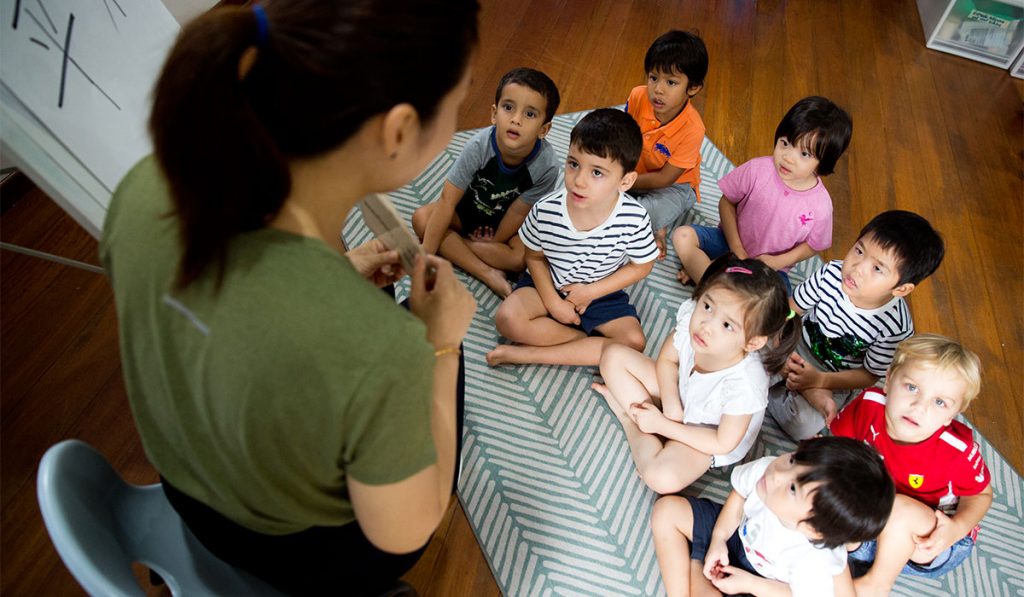
The next question we might ask may be: why should my child learn Mandarin in kindergarten? Wouldn’t it be easier for him or her to pick up the language at a later age?
There are many well-researched reasons for parents to consider immersing their children in a second language right from the get-go. These include the following:
#1 Neuroplasticity
Young minds are remarkably adaptable due to higher neuroplasticity. Starting Mandarin early taps into this natural aptitude, making the learning process easier, more effective and long-lasting.
#2 Better Accent Mastery
Early exposure to Mandarin’s tones and pronunciation allows children to develop a more authentic accent, which can be hard to master later in life.
#3 Cultural Absorption
Children are akin to sponges, absorbing cultural nuances effortlessly. Early Mandarin education immerses them in a rich cultural milieu, fostering a genuine appreciation from a tender age.
#4 More Enjoyable
Young children often find learning a new language through games, songs, and interactive activities fun. Starting Mandarin early harnesses this playful nature, making language learning fun and engaging.
#5 Foundation for Future
Establishing a solid Mandarin foundation at a young age provides a strong springboard for advanced language study and broader academic pursuits in the future.
#6 Early Cognitive Advantages
Language learning enhances cognitive skills like problem-solving, memory, and critical thinking. The earlier a child starts learning Mandarin, the sooner they can reap these brain benefits.
#7 Social Integration
When you live in a Mandarin-speaking region or plan to do so, starting Mandarin early aids in social integration, helping children communicate and build relationships within the community effectively.
In Singapore, roughly 75% of the population is Chinese in ethnicity — many older Chinese Singaporeans prefer to communicate in Mandarin rather than English.
How Heartfield Kindergarten Teaches Chinese
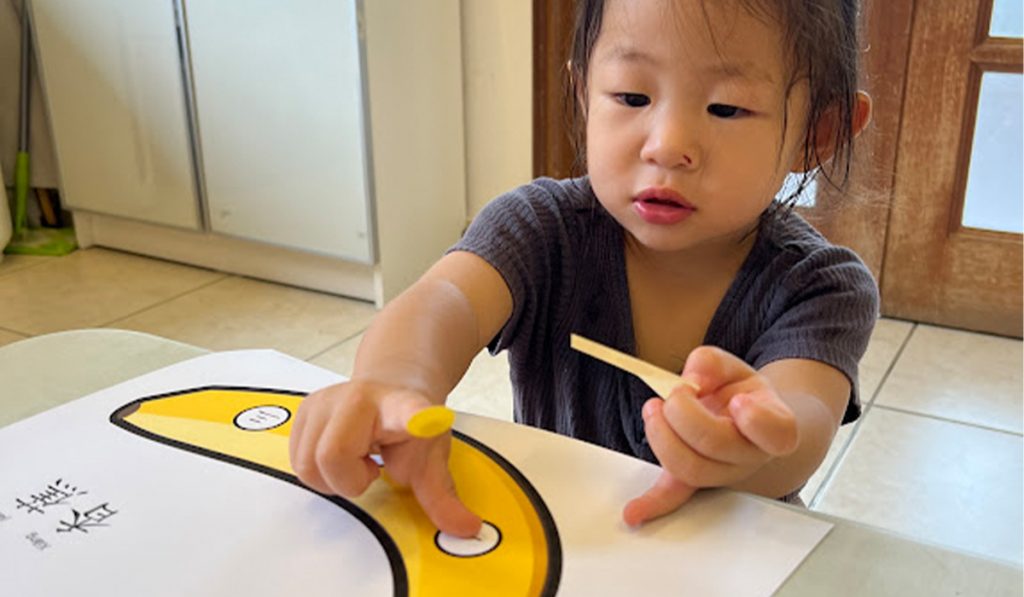
At Heartfield, we make learning Mandarin an enjoyable and exhilarating adventure for all our children. To achieve this, we designed our theme-based curriculum to foster a spirit of exploration and discovery throughout the academic year.
This is anchored by our belief that children absorb knowledge best through sensory experiences. Hence, we ensure that every Chinese lesson is a sensory-rich experience, stimulating their sight, smell, touch, hearing, and taste, making learning Chinese an engaging and holistic journey.
Immersive Mandarin-speaking Environment
One of the highlights of our curriculum is Circle Time, where small group learning takes centre stage in English or Mandarin. This setup allows children to delve into discussions, share ideas, and even dramatise the content they explore in Mandarin.
Such immersive interactions enhance their linguistic skills while making learning a collaborative and enjoyable experience.
Native Mandarin Speaking Teachers
At the heart of our Mandarin programme are native Mandarin-speaking teachers, like Zhang Lao Shi, who bring authenticity and cultural richness to the classroom. Their natural fluency, precise pronunciation, and understanding of Chinese culture create a genuine Mandarin-speaking environment.
This authentic exposure is invaluable in helping the children grasp not only the language but also the cultural nuances that come with it.
Fun and Playful yet Enriching
Incorporating Chinese Cultural Art and drama into our Mandarin lessons makes learning fun and relevant. Our kids relish the beauty and richness of Chinese culture through calligraphy, traditional art, and music. The section ‘Mandarin with Zhang Lao Shi’ encapsulates the essence of making Mandarin learning a delightful experience.
Through speech and drama, children find learning Mandarin less daunting and more engaging. This playful approach demystifies Mandarin learning and embeds a lasting love for the language and the rich culture it represents.
How to Make Learning Chinese Fun at Home
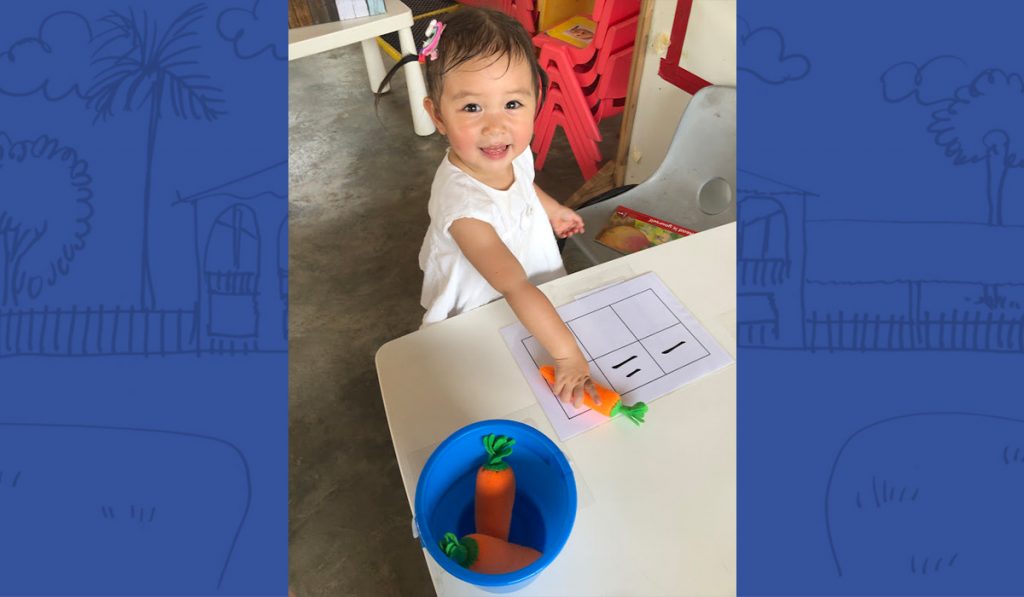
Inspired to help your kindergarten-aged child learn Chinese while they are at home? Here are some tips for you to consider.
#1 Make it immersive
One of the best ways to help your children learn Chinese is to immerse them in the language as much as possible. This means surrounding them with Chinese speakers and Chinese-language materials.
If you can speak Mandarin, choose to speak the language to your child as much as you can. A few words and phrases a day can make a difference, even if you are not fluent in the language.
Expose your child to Chinese-language media. This could include watching Chinese cartoons, listening to Chinese children’s songs, or reading Chinese children’s books.
Even better, take your child to Chinese-speaking businesses and organisations. Consider visiting a Chinese restaurant, browsing a library with Chinese books, or attending a Chinese cultural event.
#2 Make it interactive
Children learn best when they are actively engaged. To make learning Chinese fun, consider playing Chinese games and activities. There are many games and activities that can help children learn Chinese vocabulary and grammar. Some popular games include bingo, memory games, and matching games.
If you can, sing Chinese songs — including contemporary Mando-pop hits (do ensure that the lyrics are age-appropriate). Singing is a great way for children to learn new vocabulary and practice pronunciation. You can find many Chinese children’s songs online or on YouTube.
Do also encourage your child to read Chinese children’s books. Reading aloud to your child is a great way to bond with them and help them learn new vocabulary. You can also use Chinese children’s books to teach your child about Chinese culture.
#3 Make it interesting
Make learning Chinese relevant to your children’s lives. Emphasise this by connecting Mandarin learning to their everyday lives. For instance, you can teach your child the Chinese words for their favourite foods, toys, and activities.
Do also talk to your child about Chinese culture. Tell them about Chinese holidays like the Mid-Autumn Festival or Chinese New Year, as well as about Chinese food and traditions. You can also show them pictures and videos of China.
Most importantly, make learning Chinese joyful. Don’t put too much pressure on your child to learn. Make every language learning experience enjoyable.
Conclusion
In today’s globalised world, Mandarin holds a significant sway, being the language of the world’s second-largest economy and spoken by over a billion people. Its importance on the global stage and in Singapore itself can’t be overstated.
Heartfield Kindergarten’s approach to teaching Mandarin is like adding colourful strokes to a blank canvas. We make the language an art that is easy to love and learn. It’s not just about the language; it’s about cultivating a global perspective from a tender age.
Ready to explore how Heartfield Kindergarten can paint a love for Mandarin into your child’s early learning canvas? Connect with us at tel: +65 6835 2354, email: info@HeartfieldKindergarten.com, or visit our contact page for details.
